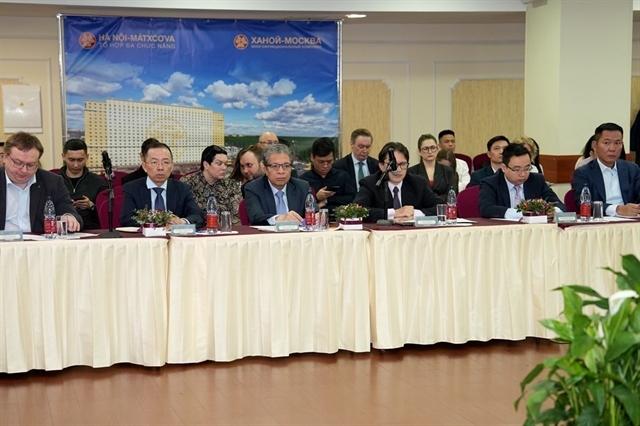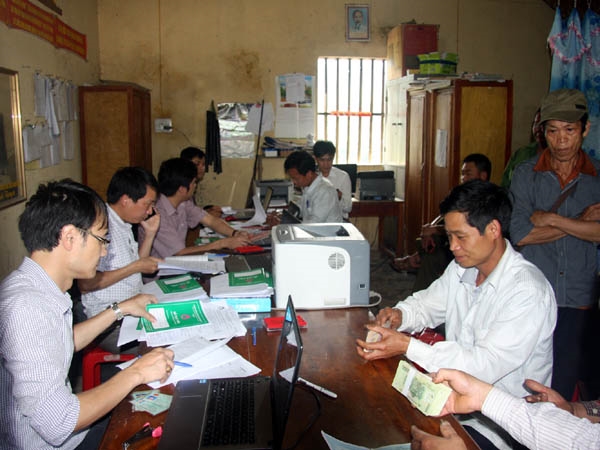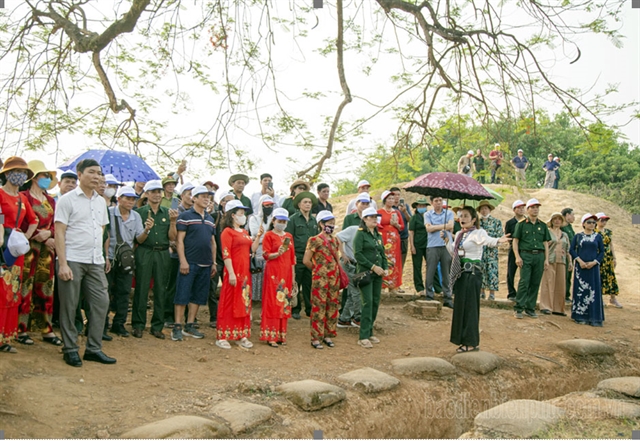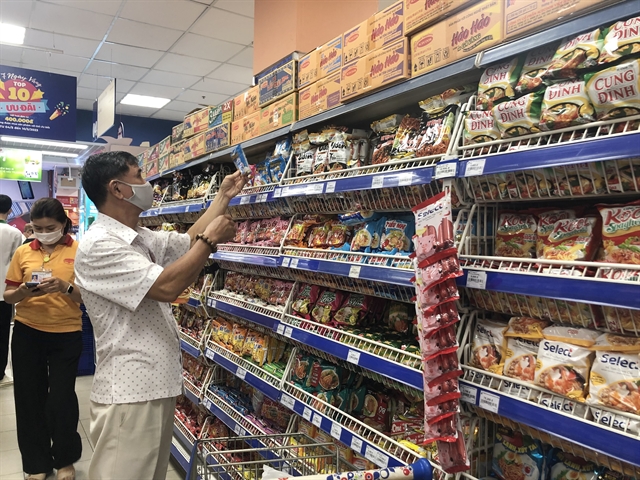 Society
Society

" />The Bank for Social Policies will be responsible for managing HCM City’s poverty-reduction fund in an additional 21 districts, the HCM City People’s Committee said on May 24.
 |
| Residents borrow loan at a branch of the Bank for Social Policies in Quang Bình District, northern Hà Giang Province. — Photo hagiang.gov.vn |
HCM CITY — The Bank for Social Policies will be responsible for managing HCM City’s poverty-reduction fund in an additional 21 districts, the HCM City People’s Committee said on Tuesday (May 24).
In October 2015, the city piloted the bank as the managerial authority of the poverty-reduction fund in the three districts of Tân Phú, 11 and Bình Chánh.
The additional 21 districts will begin managing the fund in June, and disburse money in July.
The fund gives loans to poor families and those near poverty line to help them start a business or take vocational training.
Nguyễn Thị Thu, the committee’s deputy chairwoman, said that the poverty-reduction fund was usually managed by each district’s Board for Poverty Reduction. The Women’s Union helps the boards as well.
Thu, who spoke at a workshop about the pilot programme held on Tuesday in the city, said the fund would be eventually managed in all of HCM City’s 24 districts by the Bank for Social Policies.
Thu said that poor residents had lost trust in the management, and that there are many overdue debts.
Because of ineffective management, disbursement of loans, which have often been of low value, has been delayed.
“Giving authority to the Bank for Social Policies to manage the fund is to ensure benefits for the poor,” she said.
She said that local authorities must have speedier disbursement, and clearly explain loan procedures to borrowers, including loan amounts that fit their ability to pay.
Counselling on how to use the money for business should also be given to borrowers, she added.
“Many poor people are confused about what business they should do to escape poverty,” Thu said.
Trần Phi Long, deputy chairman of the People’s Committee in District 11, said the Bank for Social Policies in District 11 provided flexible options for loan amounts and repayment terms for borrowers in the programme.
Nguyễn Văn Xê, deputy head of both the city’s Department of Labour, Invalids and Social Affairs and the Steering Committee of Poverty Reduction, said that the Bank for Social Policies in the pilot districts had been carrying out loan procedures in a timely fashion.
Xê said the bank had helped the poverty reduction board carry out other activities related to multidimensional poverty reduction, which is part of the new poverty reduction programme for the 2016-2020 period.
The bank has disbursed VNĐ13.8 trillion (US$613 million) to 708 poor families and those near the poverty line in three districts.
The fund has provided loans at an interest rate of 0.5 per cent per month to more than 2 million poor families and those near the poverty line for 23 years.
The money is used for vocational training and for new businesses.
The city’s poverty rate by the end of last year was 0.5 per cent of the total population. Each poor household has an annual income of VNĐ16 million (US$710) or under per capita.
Households with an income between VNĐ16 million and VNĐ21 million ($933) per capita per year are defined as being near-poor. — VNS




